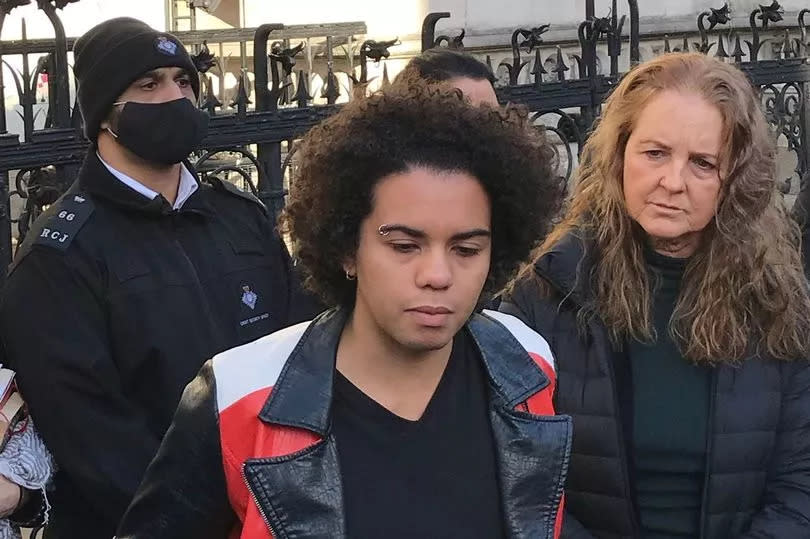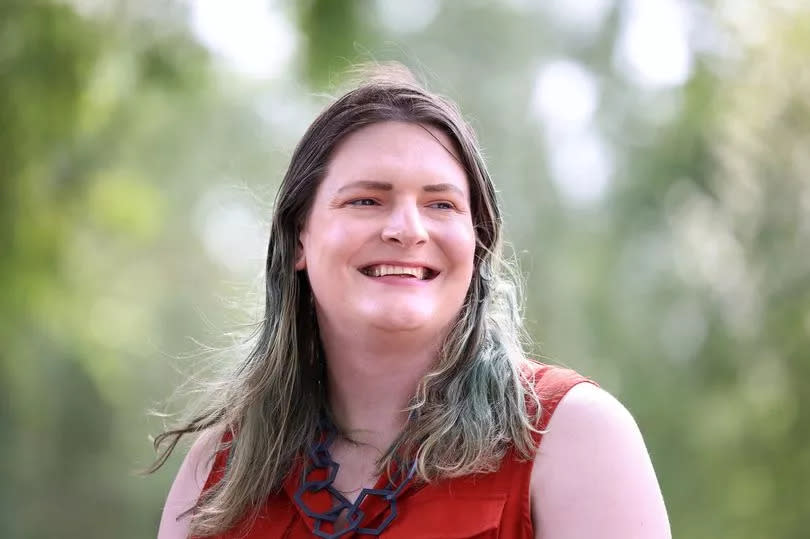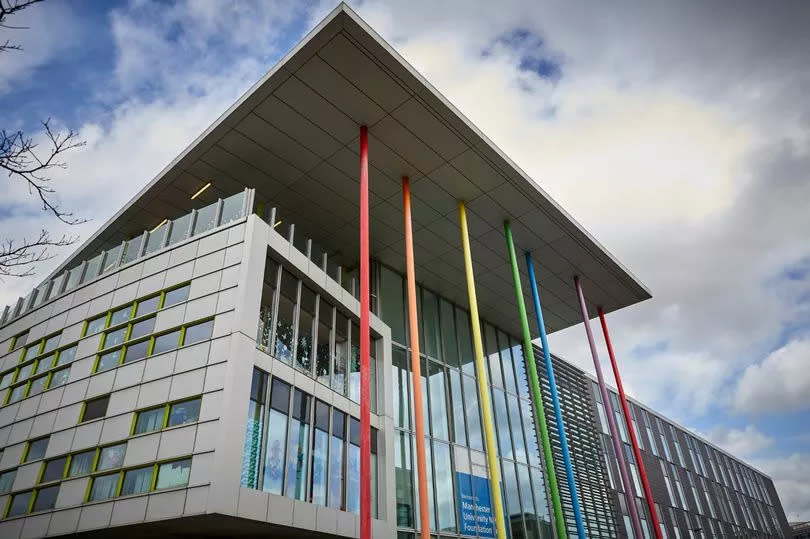'Parents will go abroad for these drugs. Trans adults have done it for years'
Trans advocates in Manchester have criticised NHS England's decision to restrict puberty blockers from being prescribed at gender identity clinics.
NHS England has handed down a national decision after a review found there was ‘not enough evidence’ that puberty blockers are safe or effective to justify prescribing them to children and young people who are transitioning. Puberty blockers, which pause the physical changes of puberty, will now only be available as part of research.
The government has praised the move, welcoming NHS England’s ‘landmark decision’ which it says is ‘in the best interests of children’. But the measure has prompted backlash from transgender advocates and charities, who say the decision could lead to dangerous consequences.
One charity leader said it could see parents resort to travelling abroad to countries like Spain and Turkey to seek out puberty blockers for their children.
Meanwhile, Manchester's first transgender councillor has said she fears self-harm and suicide rates among young people experiencing gender dysphoria will rise because of the news.
READ MORE: People are dying because their homes are too cold
'We don't know the full psychological effects of the blocker', NHS says
Puberty suppressing hormones – more commonly known as blockers – work by suppressing the release of hormones that cause puberty. They have been prescribed to children questioning their gender as a way of pausing physical changes such as breast development or facial hair.
The NHS' Gender Identity Development Service says blockers are a physically reversible intervention, and that if a young person stops taking the blocker their body will continue to develop as it was previously. "However, we don’t know the full psychological effects of the blocker or whether it alters the course of adolescent brain development."
NHS England made the announcement in response to the results of a public consultation on the ban, first proposed last June, and an NHS-commissioned review of the available evidence by the National Institute for Health and Care Excellence (NICE).
The consultation on the future of gender services received more than 4,000 responses, including 10 per cent from trans adults and five per cent from clinicians, the BBC has reported.

An interim report was published in 2022 by Dr Hilary Cass, who has been leading the overall review into gender identity services and puberty supressing hormones. The report found there were ‘gaps in evidence’ around the drugs and called for a transformation in the model of care for children with gender-related distress.
Dr Cass, an ex-president of the Royal College of Paediatrics and Child Health, also gave interim advice warning against routine prescription of the drugs.
Dr Cass's work has been closely scrutinising gender services for children and young people in general, including the Gender Identity Development Service (GIDS) nationally run by the Tavistock and Portman NHS Foundation Trust, with centres in London and Leeds. The service has been the only one of its kind in the UK.
Whistleblowers – and some parents – accused Tavistock-led GIDS of fast-tracking troubled young people on to under-researched medical interventions and failing to consider other factors, such as autism and abuse, the Guardian reported.
After Dr Cass' 2022 interim report, it was announced that the Tavistock and Portman trust's national specialised gender service would close at the end of this month, amid a significant spike in demand outstripping the resources of one trust. It will be replaced by new regional services – again at the recommendation of Dr Cass.
The regional clinics are being set up to ‘ensure the holistic needs’ of patients are being met after warnings that having only one provider of gender identity services was ‘not a safe or viable long-term option’, said Dr Cass' 2022 interim report.
However, some trans activists who have spoken to the Manchester Evening News directly, have argued the care that has been provided by Tavistock-led GIDS, including the provision of puberty blockers, is a vital and safe option for young people needing to explore their gender identity, guided by clinicians.
Fewer than 100 young people under 17 are currently taking puberty blockers, and will all be able to continue their treatment after the NHS’ decision, the NHS has confirmed.
'I've had parents crying down the phone, asking what they're going to do now'
Jay Crawford, chair of trustees of Sparkle, the UK’s national transgender charity, claimed to the Manchester Evening News that puberty blockers are ‘safe, and the effects are reversible as they are a temporary pause on puberty'. Jay said: “I’ve had parents calling me crying down the phone because of the decision, asking what they’re going to do.
“This is going to affect the mental health of an entire generation, it’s diabolical. Every child has the right to medical care that meets best with their needs.
“If we’re not providing that because a child is trans, that is discrimination in its truest form. We’ve already had inquest after inquest of young people killing themselves because they cannot get the health care that they need – that will only grow.”

The NHS’s latest decision on puberty blockers means that the new regional services caring for under-18s with gender dysphoria, which open next month including at the Royal Manchester Children’s Hospital, will not use them as part of the treatment.
From now on, children and young people will only be able to get them if they are taking part in a clinical trial. At least one such trial is promised to start later this year, but details like who will be eligible to join it have ‘yet to be decided’, the NHS has added.
Chris Northwood, Manchester City Council’s first transgender councillor says she fears that self-harm and suicide rates among young people experiencing gender dysphoria will rise because of the news. She claims the use of puberty blockers is already ‘not routine’, saying ‘they are already so hard to get prescribed’, and that children can even go through puberty while on waiting lists for any treatment or support.

The councillor told the M.E.N.: “It's a move to crack down on something that wasn’t really happening in the first place – which makes it seem more politically motivated."
Keira transitioned and regretted it

There have been legal challenges against the use of puberty blockers. In December 2020, the High Court ruled that under-16s considering gender reassignment were unlikely to be mature enough to give informed consent to be prescribed puberty-blocking drugs, describing them as 'experimental' treatment.
Keira Bell, one of the claimants in the case, started taking puberty blockers at the age of 16 after being referred to the Tavistock and Portman Trust. By her mid-20s, she said she regretted her decision to transition to male and detransitioned.
She said the clinic should have challenged her more. The three High Court judges in her case against the Tavistock said the doctors of teenagers under 18 may need to consult the courts for authorisation for medical intervention and, as a result of the decision, the Tavistock and Portman trust suspended new referrals for puberty blockers and cross-sex hormones for under-16s.
However, the court of appeal overturned the controversial judgement in 2021, with the Lord Chief Justice saying it had been 'inappropriate' for the High Court to issue that guidance, adding: “In practice the [High Court] guidance would have the effect of denying treatment in many circumstances for want of resources to make such an application coupled with inevitable delay through court involvement.”
Ms Bell said she planned to seek leave to appeal to the supreme court, adding: “A global conversation has begun and has been shaped by this case. There is more to be done. It is a fantasy and deeply concerning that any doctor could believe a 10-year-old could consent to the loss of their fertility.”
Chris wishes she could have transitioned earlier

Both Jay Crawford of Sparkle and Coun Chris Northwood draw on their own experiences of gender dysphoria in their youth, leading to their transition as adults. Trans people have always existed, they say, but people are coming out earlier now because of the increasing visibility, better education and more acceptance of trans people within society, which is why some people may feel like there are more trans people.
Jay said: “I was a trans child, I knew what I needed when I was five-years-old, how could I say to any other child ‘you don’t know what you’re talking about?’”
Meanwhile, Coun Northwood describes lifelong feelings of ‘not being able to envision her future’ and feeling like her body was ‘just a vessel’ rather than a home. In her 30s and self-reflecting during the Covid-19 lockdown, she started researching where these feelings were coming from and realised that this was the experience of many trans people.
The Ancoats and Beswick councillor said: “If I could have transitioned younger, I would have done – there’s elements of puberty you can never really undo once they happen. I’m really happy with my transition and I’m so much happier in myself, but if you fast-forward… if someone is coming out as trans when they’re young and they start to transition, they were probably going to transition anyway.
“There will just be more serious work to be done to correct the changes that they never really wanted.”
Both Chris and Jay claim the decision could lead to furthering inequalities between children, as some children could be at an advantage if their families can pay for the treatment privately. Coun Northwood said: “It’s leaving people to go down the route of private clinics, some of which are much better than others.”
'I can't see it from both sides, because this is life or death'

Meanwhile Jay adds that families could even be forced to travel abroad to access the drugs, especially if their child’s mental health declines further because they cannot access puberty blockers in their home country, leading to unregulated use.
“These drugs are more readily available in places like Spain and Turkey and people will travel for them, we know this because trans adults have had to do it for years,” said Jay. “I can see the scenario now where a parent will take it upon themselves to go to a foreign country, get those drugs themselves and then give them to their child.
“What’s the other option for them? Your child committing suicide?”
Jay argues the decision comes against a backdrop of ‘no mental health support’ available to provide help to those who will now be denied the treatment. Instead, Jay claims, children will be referred back into already-stretched local mental health services where they will again wait months for care.
“Blockers are, in most cases, the end of a very long, very arduous mental health struggle where it’s the only option to keep your child alive,” she said.
“No one goes to blockers as a first option… I just can’t see it from both sides because this is life or death.”
What the government says
The government has ‘welcomed this landmark decision’.
Maria Caulfield, the health minister, is reported by the BBC to have said: "We have always been clear that children's safety and wellbeing is paramount, so we welcome this landmark decision by the NHS.
"Ending the routine prescription of puberty blockers will help ensure that care is based on evidence, expert clinical opinion and is in the best interests of the child."
Meanwhile, the BBC reported how John Stewart, national director of specialised commissioning at NHS England, said: "Given that the debate is often very polarised, so too were the responses to the consultation.
"Many people said the policy didn't go far enough in terms of still allowing potential access [to puberty blockers] through research, and others saying clearly they disagreed fundamentally and that these should be routinely available to everyone who believes they need it."

A Care Quality Commission (CQC) inspection in 2021 of the Tavistock and Portman service found there were over 4,600 young people on the waiting list, and young people waiting over two years for their first appointment with the clinic. The service was given an 'inadequate' rating.
Dr Cass's 2022 interim report found there has been a sharp rise in the number of referrals to the service, which increased from just under 250 referrals in 2011/12, to more than 5,000 referrals in 2021/22. At the time of the CQC inspection, doctors shared concerns that some patients were referred on to a gender transitioning pathway too quickly.
There were also fears that a 'significant number of children are presenting with neurodiversity and other mental health needs which need to be better understood', as families try to make 'informed decisions about interventions that may have life-long consequences'.
The beginning of April will see the opening of a new regionalised gender identity service open at the Royal Manchester Children’s Hospital. More centres are also being opened in Great Ormond Street and Alder Hey hospitals.
NHS England hopes to ultimately create seven or eight centres. An NHS England spokesperson said: “In line with the Cass Review, NHS England took the decision to close the Tavistock and set up a fundamentally different and improved approach to children and young people’s gender services.
“This transition is a complex piece of work which is why we have ensured every family has received a letter informing them of the changes, patients will see continuity of care when the new services come on line from April, and all patients waiting will be offered a local mental health assessment if they want it, with extra national resource provided to ensure the best possible support.”
A spokesperson for Manchester Pride reminded people hit by the news of the available support, saying: “This news is yet another setback in gender-affirming healthcare and a real example of how the NHS is failing trans youth. Described as a ‘life-saving’ drug for trans-teenagers in a landmark study, this news is a blow for thousands of young people who are delayed from accessing the vital health care they deserve.
“We understand how this news will negatively impact young trans people and their loved ones. Those currently prescribed puberty blockers will not see a change in their treatment. And it is believed that puberty blockers will be available to young people in the future, but only through a mandatory research trial.
“At Manchester Pride, we will continue to provide practical support for the young trans people who are involved in our Youth Pride MCR programme, who deserve to live authentically. And we will continue to create space for young LGBTQ+ people and allies to express themselves and their identities.
“We advise anyone who has been impacted by this news to reach out to The Proud Trust for support. Proud Trust is an LGBT+ youth charity that works to empower young people, through its youth work and one-to-one support across Greater Manchester. Their Proud Connections programme offers bespoke support to LGBT+ young people and the adults in their lives.”
The dramatic changes that have led to a 'lack of consensus'

After the 2021 CQC inspection of the Tavistock-led GIDS, Dr Cass said this uptick in demand, overwhelming staff, was leaving young people at ‘considerable risk’ of distress and deteriorating mental health.
“There has been a dramatic change in the case-mix of referrals from predominantly birth-registered males to predominantly birth-registered females presenting with gender incongruence in early teen years,” said the 2022 review of the clinic, led by Dr Cass.
“Additionally, a significant number of children are also presenting with neurodiversity and other mental health needs and risky behaviours which requires careful consideration and needs to be better understood.
“This has led to a lack of clinical consensus and polarised opinion on what the best model of care for children and young people experiencing gender incongruence and dysphoria should be; and a lack of evidence to support families in making informed decisions about interventions that may have life-long consequences.”
An NHS spokesperson said: “NHS England has carefully considered the evidence review conducted by NICE and further published evidence available to date.
“We have concluded that there is not enough evidence to support the safety or clinical effectiveness of puberty suppressing hormones to make the treatment routinely available at this time.”

 Yahoo News
Yahoo News 
